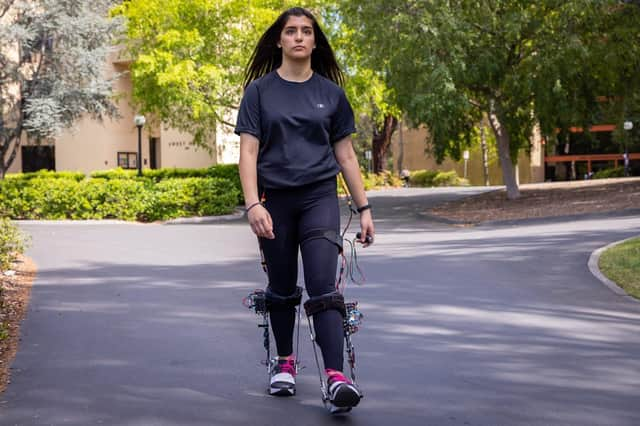Stanford University's speedy exoskeleton boots sound like fun, but most may prefer to stroll naturally – Scotsman comment


The ability to move on just two feet, rather than four – freeing up our hands for so many things – has been so central to our development as a species.
But what if we could walk ‘better’ – not just more quickly, but more easily?
Advertisement
Hide AdAdvertisement
Hide AdScientists at Stanford University in the US have developed an exoskeleton boot that enables people to walk nine per cent faster with 17 per cent less effort. Just think of all the meetings we could just make rather than being late, the other things we could do in the time saved!
But then, it’s probably true that we’d have to factor into the equation the time taken to both put the boots on and take them off again.
Also, isn’t life perhaps a little bit too fast already? Wouldn’t we benefit from slowing down a bit more, rather than speeding things up?
Hippocrates, aka the Father of Western Medicine, is credited with saying that “walking is the best medicine” – this was long before antibiotics, vaccines, anaesthetics etc. But if a machine is doing some of the walking for us might that not water down the undoubted beneficial effects?
The inventors expressed the hope that their boots would help elderly people to walk at the same speeds as younger people, a noble aim.
However, while speedy boots do sound like a fun thing to try, we suspect many may prefer to stroll as nature intended and, if necessary, politely ask youthful companions to slow down a little.
Comments
Want to join the conversation? Please or to comment on this article.